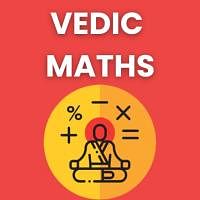Banking Exams Exam > Banking Exams Questions > Analog computer works on the supply ofa)conti...
Start Learning for Free
Analog computer works on the supply of
- a)continuous electrical pulses
- b)electrical pulses but not continuous
- c)magnetic strength
- d)physical strength
- e)None of the above
Correct answer is option 'A'. Can you explain this answer?
| FREE This question is part of | Download PDF Attempt this Test |
Most Upvoted Answer
Analog computer works on the supply ofa)continuous electrical pulsesb)...
Analog computers work on the supply of A, continuous electrical pulses. These computers use continuously variable physical quantities, such as voltage or current, to represent and manipulate data. By utilizing electrical signals that can vary smoothly and continuously, analog computers can perform calculations and solve mathematical equations using physical quantities as inputs and outputs. This is in contrast to digital computers that operate on discrete values, represented by binary digits (bits).
Free Test
FREE
| Start Free Test |
Community Answer
Analog computer works on the supply ofa)continuous electrical pulsesb)...
Continuous electrical pulses in Analog Computers
Analog computers operate based on the supply of continuous electrical pulses. Here's how it works:
1. Analog Signals:
- Analog computers use continuous electrical signals to represent variables and perform calculations.
- These signals are typically in the form of voltages or currents that vary smoothly over time.
2. Continuous Operations:
- Unlike digital computers that work with discrete values (0s and 1s), analog computers can process a continuous range of values.
- This allows for more precise calculations in certain applications where continuous data is essential.
3. Signal Processing:
- The continuous electrical pulses in analog computers are used to perform mathematical operations such as addition, subtraction, multiplication, and division.
- These operations are carried out by analog circuits that manipulate the electrical signals.
4. Real-time Processing:
- Analog computers are well-suited for real-time processing tasks where immediate responses to changing inputs are required.
- The continuous nature of the electrical signals allows for quick and efficient computations.
5. Applications:
- Analog computers have been used in various applications such as control systems, simulations, signal processing, and scientific research.
- While digital computers have largely replaced analog computers in many areas, analog systems still offer advantages in certain specialized tasks.
In conclusion, analog computers rely on the supply of continuous electrical pulses to perform calculations and process data in real-time. Their ability to work with continuous signals makes them suitable for specific applications where precision and speed are crucial.
Analog computers operate based on the supply of continuous electrical pulses. Here's how it works:
1. Analog Signals:
- Analog computers use continuous electrical signals to represent variables and perform calculations.
- These signals are typically in the form of voltages or currents that vary smoothly over time.
2. Continuous Operations:
- Unlike digital computers that work with discrete values (0s and 1s), analog computers can process a continuous range of values.
- This allows for more precise calculations in certain applications where continuous data is essential.
3. Signal Processing:
- The continuous electrical pulses in analog computers are used to perform mathematical operations such as addition, subtraction, multiplication, and division.
- These operations are carried out by analog circuits that manipulate the electrical signals.
4. Real-time Processing:
- Analog computers are well-suited for real-time processing tasks where immediate responses to changing inputs are required.
- The continuous nature of the electrical signals allows for quick and efficient computations.
5. Applications:
- Analog computers have been used in various applications such as control systems, simulations, signal processing, and scientific research.
- While digital computers have largely replaced analog computers in many areas, analog systems still offer advantages in certain specialized tasks.
In conclusion, analog computers rely on the supply of continuous electrical pulses to perform calculations and process data in real-time. Their ability to work with continuous signals makes them suitable for specific applications where precision and speed are crucial.
Attention Banking Exams Students!
To make sure you are not studying endlessly, EduRev has designed Banking Exams study material, with Structured Courses, Videos, & Test Series. Plus get personalized analysis, doubt solving and improvement plans to achieve a great score in Banking Exams.

|
Explore Courses for Banking Exams exam
|

|
Analog computer works on the supply ofa)continuous electrical pulsesb)electrical pulses but not continuousc)magnetic strengthd)physical strengthe)None of the aboveCorrect answer is option 'A'. Can you explain this answer?
Question Description
Analog computer works on the supply ofa)continuous electrical pulsesb)electrical pulses but not continuousc)magnetic strengthd)physical strengthe)None of the aboveCorrect answer is option 'A'. Can you explain this answer? for Banking Exams 2024 is part of Banking Exams preparation. The Question and answers have been prepared according to the Banking Exams exam syllabus. Information about Analog computer works on the supply ofa)continuous electrical pulsesb)electrical pulses but not continuousc)magnetic strengthd)physical strengthe)None of the aboveCorrect answer is option 'A'. Can you explain this answer? covers all topics & solutions for Banking Exams 2024 Exam. Find important definitions, questions, meanings, examples, exercises and tests below for Analog computer works on the supply ofa)continuous electrical pulsesb)electrical pulses but not continuousc)magnetic strengthd)physical strengthe)None of the aboveCorrect answer is option 'A'. Can you explain this answer?.
Analog computer works on the supply ofa)continuous electrical pulsesb)electrical pulses but not continuousc)magnetic strengthd)physical strengthe)None of the aboveCorrect answer is option 'A'. Can you explain this answer? for Banking Exams 2024 is part of Banking Exams preparation. The Question and answers have been prepared according to the Banking Exams exam syllabus. Information about Analog computer works on the supply ofa)continuous electrical pulsesb)electrical pulses but not continuousc)magnetic strengthd)physical strengthe)None of the aboveCorrect answer is option 'A'. Can you explain this answer? covers all topics & solutions for Banking Exams 2024 Exam. Find important definitions, questions, meanings, examples, exercises and tests below for Analog computer works on the supply ofa)continuous electrical pulsesb)electrical pulses but not continuousc)magnetic strengthd)physical strengthe)None of the aboveCorrect answer is option 'A'. Can you explain this answer?.
Solutions for Analog computer works on the supply ofa)continuous electrical pulsesb)electrical pulses but not continuousc)magnetic strengthd)physical strengthe)None of the aboveCorrect answer is option 'A'. Can you explain this answer? in English & in Hindi are available as part of our courses for Banking Exams.
Download more important topics, notes, lectures and mock test series for Banking Exams Exam by signing up for free.
Here you can find the meaning of Analog computer works on the supply ofa)continuous electrical pulsesb)electrical pulses but not continuousc)magnetic strengthd)physical strengthe)None of the aboveCorrect answer is option 'A'. Can you explain this answer? defined & explained in the simplest way possible. Besides giving the explanation of
Analog computer works on the supply ofa)continuous electrical pulsesb)electrical pulses but not continuousc)magnetic strengthd)physical strengthe)None of the aboveCorrect answer is option 'A'. Can you explain this answer?, a detailed solution for Analog computer works on the supply ofa)continuous electrical pulsesb)electrical pulses but not continuousc)magnetic strengthd)physical strengthe)None of the aboveCorrect answer is option 'A'. Can you explain this answer? has been provided alongside types of Analog computer works on the supply ofa)continuous electrical pulsesb)electrical pulses but not continuousc)magnetic strengthd)physical strengthe)None of the aboveCorrect answer is option 'A'. Can you explain this answer? theory, EduRev gives you an
ample number of questions to practice Analog computer works on the supply ofa)continuous electrical pulsesb)electrical pulses but not continuousc)magnetic strengthd)physical strengthe)None of the aboveCorrect answer is option 'A'. Can you explain this answer? tests, examples and also practice Banking Exams tests.

|
Explore Courses for Banking Exams exam
|

|
Suggested Free Tests
Signup for Free!
Signup to see your scores go up within 7 days! Learn & Practice with 1000+ FREE Notes, Videos & Tests.






















